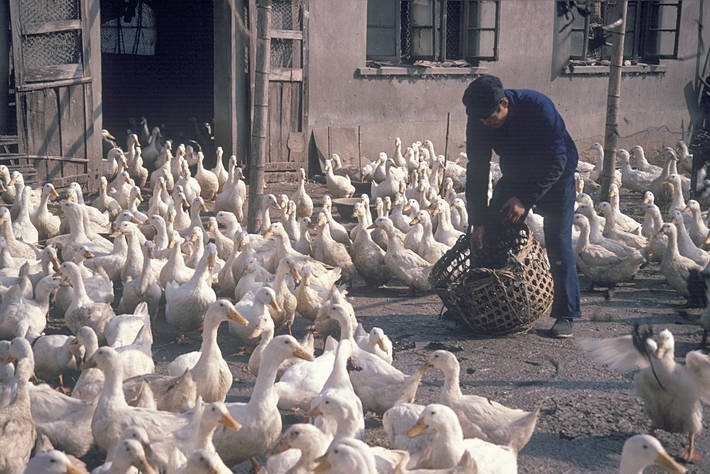New AMR publication launched, and partnership expanded.
November 13, 2018

The global tripartite partnership calling for more responsible use of antibiotics in humans, animals and agriculture (including aquaculture and plant production) has announced it is widening its coverage to include the environment sector.
The U.N. Food & Agriculture Organization (FAO), the World Organization for Animal Health (OIE) and the World Health Organization (WHO) announced Nov. 12 that they have expanded their partnership to counter antimicrobial resistance (AMR) through the addition of the U.N. Environment Program.
According to FAO, the move was intended to tackle AMR in "a more holistic way," and the new partnership — to be known as the Tripartite Plus — was announced at the opening of World Antibiotic Awareness Week observance in Asia and the Pacific.
Kundhavi Kadiresan, FAO assistant director-general and regional representative for Asia and the Pacific, emphasized the important role the environment plays in addressing AMR, pointing out that all antibiotics, whether from manufacturing processes or passing through humans and animals, can end up in soil, water and the environment, giving microbes further opportunity to build up resistance.
In pharmaceutical terms, "antimicrobials" describe drugs used to prevent and treat parasitic, bacterial, viral and fungal infections, the organizations said. Antibiotic resistance is the ability of bacteria to survive treatment with antibiotics. Thus, AMR is the general term for drug resistance in microbes. While AMR occurs naturally, misuse of antimicrobials contributes to an acceleration in cases of AMR, the organizations explained.
Antibiotics, while very useful medicines invented to fight off infections, are becoming less effective due to physicians, veterinarians and dentists over-prescribing them and farmers and agronomists misusing them, the Tripartite Plus group said. The resulting resistance that has built up over time has become a global health emergency, leading the U.N. General Assembly to include AMR as a priority health issue to be tackled alongside responses to Ebola and HIV.
Awareness week
The main message of this year's World Antibiotics Awareness Week is to "handle antibiotics with care." WHO is focusing on food safety, while OIE will be promoting prudent and responsible use of antimicrobials in animals. FAO is emphasizing promoting good farming and biosecurity practices aimed at preventing infection in livestock, aquaculture and crop production.
The overall objective is to strengthen efforts to achieve many of the global sustainable development goals -- particularly the goal of zero hunger -- by 2030, the Tripartite Plus said.
This year, the Tripartite Plus will revisit the global action plan on AMR, which sets out responsibilities for national governments, WHO, FAO and OIE, as well as other national and international partners, in responding to AMR. Promoting positive behavioral change remains one of the priorities in mitigating the spread of AMR. Strengthening policies and surveillance is crucial as well, the announcement said.
Launch of new AMR publication
Since September 2016, FAO has further initiated activities in the Asia Pacific region to harmonize AMR and antimicrobial use surveillance and review AMR policies.
As part of the FAO regional initiative on One Health, a new regional publication on AMR policy was also launched. The "AMR Policy Review & Development Framework" is a regional guide for Asia Pacific governments to review, update and develop policies to address AMR and antimicrobial use in animal production.
Efforts to raise public awareness about AMR in the food and agriculture sector have been strengthened. The U.S. Agency for International Development, the U.K.'s Fleming Fund and the Russian Federation have been actively supporting FAO's AMR projects to assist countries and regions in addressing this global threat.
You May Also Like

.png?width=300&auto=webp&quality=80&disable=upscale)

